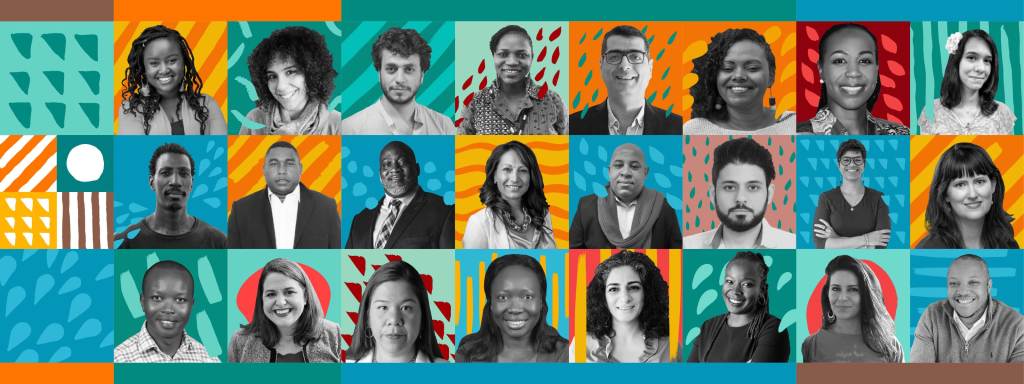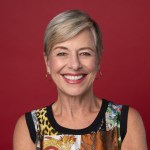
Climate change. The rise of authoritarianism. The devastating spread of pandemics that respect no boundaries. The challenges we face as a world today are both unique and daunting. Yet, in many ways, they are the same forces of evil and injustice we’ve been wrestling with for decades, for centuries, for all of human history.
Today, the way these forces work has become all the more complex. The world is moving faster than ever, the global population is exploding, the proliferation of technology has made society more connected than ever before in history, and yet the rifts between us have only widened.
Inequality, in all its forms, is an issue that will define our time. And it has only worsened, compounded by a global pandemic that’s exposed the fragility of our systems and made the vulnerable even more vulnerable and a dangerous rolling back of democracy in nations everywhere, disabling access to information and leaving citizens voiceless.
To build a future that’s truly equitable in a time like this requires a particular kind of leader. Leaders grounded in the issues and deeply aware of the systems and structures at play. Leaders who are unafraid to navigate the unknown in a rapidly evolving world and have the tenacity to forge ahead even when they don’t have the answers, seeking solutions from different people, places and cultures. Leaders who have committed to something bigger than themselves—a just, more inclusive world where every person can live with dignity and opportunity—and who have the courage to make it a reality.
It also requires looking for leaders in different places—in the Global South as well as the Global North and in communities most impacted by injustice. And it requires connecting them to each other, since effective solutions to the kinds of inequality we face cross boundaries as well.
Since Ford was founded, we have invested in individuals, ideas and institutions working to dismantle the root causes of injustice. We believe individuals make ideas grow and institutions work and, together, they can create real, lasting impact in the world. Progress is not possible without leaders who have the audacity to imagine a brighter future and steer us toward that vision.
Over the last 80 years, we have supported social, political and intellectual leaders such as Kofi Annan, Muhammad Yunus and Henry Louis Gates Jr. who challenged the status quo and demonstrated that change was possible. We have cultivated the talents of such writers as James Baldwin, Katherine Anne Porter and Saul Bellow who pushed our thinking and changed the way we see the world. We have fostered the development of countless individuals from communities around the globe, from constitutional lawyers in South Africa to doctorate students of color in the United States—all in an effort to build the next generation of leaders committed to a more just world.
The foundation’s largest fellowship, the International Fellowships Program, built on this legacy and went beyond it. Created in 2001, the program was designed to advance the education of social justice leaders around the globe. Over its 12 years, more than 4,300 fellows from 22 countries completed a graduate or post-graduate program and have since gone to make their mark in their respective countries—holding public office, heading government agencies, building civil society organizations, and mobilizing grassroots campaigns to defend the rights of all people.
Building on the foundation’s long experience, we sought to imagine a fellowship program for the current moment. We looked for leaders emerging from every corner of the world who were looking at the problems facing their communities with fresh perspectives. They were eschewing old, timeworn solutions and instead creating new, inventive approaches to address them. They were, however, under-resourced, under-recognized, and lacking the support system to take their work to the next level. We started to devise a program that could bring these individuals together to learn from one another, create connections to deepen their work, and develop shared solutions to tackle the drivers of inequality.
The result is the Ford Global Fellowship, a unique program that builds on all we’ve learned investing in leadership over the years. Created in partnership with our fellows, the 18-month program is designed to give social change agents the space and support to grow both individually and collectively. They create the curriculum and set their own goals, so the experience is transformative, rather than performative, allowing them the room to develop the skills most valuable to them at this stage in their leadership journey.
Having had the privilege of benefiting from fellowships at pivotal moments in my career, I knew it would be important to give our fellows the time, freedom and community to reflect, uncover their blind spots, experiment with ideas, establish connections, and push themselves, personally and professionally. Leadership is a continual, evolutionary process, and our hope is that, with that trust in place, the fellowship will become a catalyst to accelerate their impact.
For this first year, we have brought together 24 changemakers from six different countries working across sectors, borders and contexts to tackle the roots of inequality. They are individuals such as Carlos Naffah, who is reimagining transportation for disabled communities in Lebanon; Daiene Mendes, who is building a collective of writers from Brazil’s favelas to amplify voices that have long gone unheard; and Desmond Meade, whose own incarceration experience led him to create the Florida Rights Restoration Coalition and help re-enfranchise 1.4 million people with felony convictions.
Over the next 10 years, we have committed $50 million to expand our corps of changemakers to roughly 250 fellows across five continents. By bringing together individuals with significant geographic, class, ethnic, religious and educational diversity, we can build a cohort reflective of the world today and of the leadership our society needs. Inequality takes many shapes around the globe, and we need leaders who can cross lines of difference and bridge divides between rich and poor, public and private, business and philanthropy, profit and purpose, shareholders and stakeholders.
Our aim is not only to empower these leaders but also to build connections and deepen relationships to create a powerful global ecosystem of change agents. They may be entering the fellowship as individuals, but they are joining Ford’s long-established vast community of leaders. In today’s world, the very idea of fellowship is as important as leadership because the problems we need to confront transcend borders and demand the power of many. Together, we can achieve much more than any one of us can alone. And that’s why I couldn’t be more excited to introduce you to the collective of individuals quickly becoming an unstoppable force to end inequality. Meet the Global Fellows.
